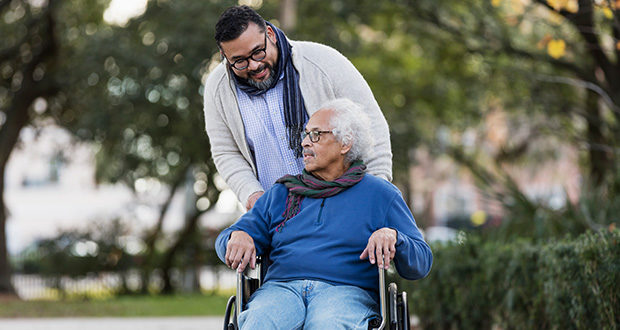A global review has highlighted the urgent need for gender-neutral policies to protect the mental health of unpaid female carers.
Researchers from the University of Melbourne looked at nearly 140,000 records worldwide and found that unpaid caregiving negatively affected mental health, particularly in women.
One in ten Australians are informal carers of older and sick people, and the majority are unpaid.
Research assistant Jen Ervin said our nation has many social-cultural levers resulting in women doing disproportionately more care.
"It's disappointing that Australia is still behind in introducing gender-neutral policies," Ervin said.
"These policies would start to shift the dials."
Ervin told Aged Care Insite that gender-neutral policies would help even the scales in caregiving and safeguard the mental health of female carers.
ACI: So, you found that globally, 80 per cent of informal caregivers are women. How were these gendered roles reflected in your review?
JE: Caring has been deeply gendered for a very long time due to pervasive and entrenched social and cultural norms around unpaid labour and care. We know caring is considered feminised work, so many countries' policies around leave and carer's leave are still highly gendered.
At a policy level, there's a need for workplace policies to allow both men and women to work flexibly and take time off for care. So, there needs to be a gender-neutral policy approach, so it doesn't fall disproportionately on women.
There's been a slight flexibility in stigma in Australia, where men can take off time to provide care. I don't think men are bluntly refusing - I believe there are a lot of socio-cultural levers resulting in women doing disproportionately more care.
In Norway, for instance, they have a 'use it or lose it' parental leave approach that is gender neutral. So, if fathers don't take up their 16-week component, the whole family loses allowance. This has led to a rapid shift where 90 per cent of fathers take up their parental leave, and that's why these levers work so well. It also makes child caring more normative for dads. A knock-off effect could be that men are also more likely to take care of their older parents, for example, and that's a massive shift.
That's really clever.
Yeah, clever and a bit disappointing that Australia is still behind this. Gender-neutral policies were raised several times during the Jobs Summit, especially around discussions about parental leave. We pushed very hard through academic leaders and women who were present. But the government has so far only increased the number of days of parental leave, whereas a gender-neutral policy would start to shift the dials.
What are some of the factors in caregiving that cause it to impact mental health negatively?
Many theories attempt to explain why informal or unpaid care provision can adversely affect a carer's mental health. Some of the most popular and evidence-based approaches include the multiple stressors theory, which talks about different stress elements in combination with external and internal individual cases stresses.
There are also theories around the strain of juggling multiple roles that can lead to an overload of role-strain perspectives. And then there's also the impact of time scarcity on the mental wellbeing of carers. But on the flip side, many carers will prioritise the health of the person they're caring for, which means they don't necessarily practise self-care behaviours for themselves.
And last but not least - caregiving is emotionally laden work. That effect is probably played out through the relationship someone has with the person they're caring for and how healthy they may be. So, it's very different to look after a healthy older person or child as it may be to look after someone like your spouse or parent who's very unwell. So, that family effect can be quite different depending on the circumstance.
So, how can we better support them from a societal perspective but also through the government?
We need to understand better how to help current and future caregivers. Part of this is doing more research and qualitative work about their needs. But the first thing is to recognise caring because there are many ways we can help support carers already.
These include respite care, counselling to reduce carer's stress, peer-to-peer networks, and providing information to help navigate health services and systems. Financial support is also a big one, to allow for care subsidies for the carer because they're often unable to work or their paid work is limited from their caregiving provision. It means they not only have less money and less cumulative wealth, but they also don't have as much accumulated super.
Do you have an idea for a story?Email [email protected]
 Aged Care Insite Australia's number one aged care news source
Aged Care Insite Australia's number one aged care news source

